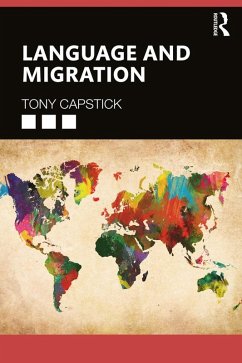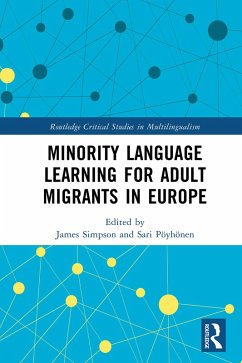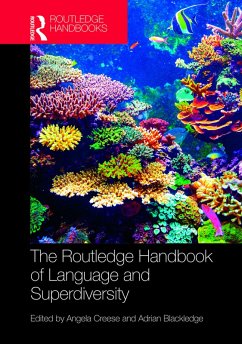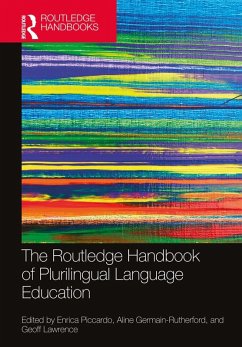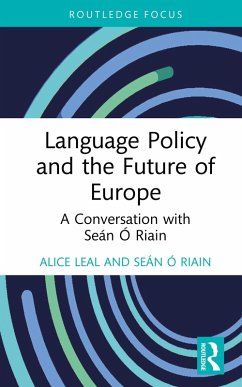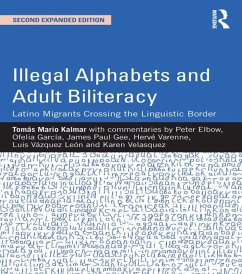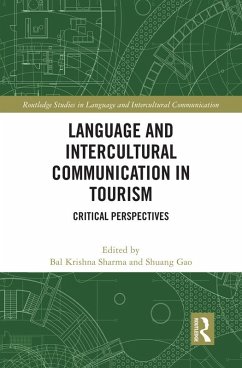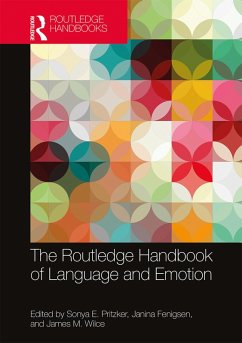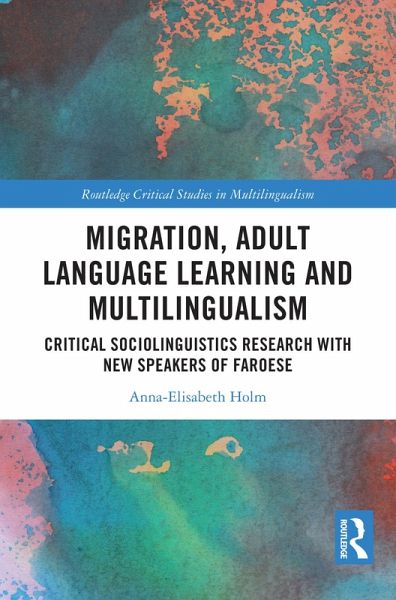
Migration, Adult Language Learning and Multilingualism (eBook, PDF)
Critical Sociolinguistics Research with New Speakers of Faroese
Versandkostenfrei!
Sofort per Download lieferbar
42,95 €
inkl. MwSt.
Weitere Ausgaben:

PAYBACK Punkte
21 °P sammeln!
*2025 BAAL (British Association of Applied Linguistics) Book Prize WINNER*This book extends lines of inquiry at the nexus of migration, adult language learning, and multilingualism, illuminating the lived experiences of migrants in the Faroe Islands and critical new insights into sociolinguistics from the periphery.Building on recent epistemological shifts in research on minoritised languages, this volume integrates threads from scholarship on migration studies, new speakers, and critical sociolinguistics in examining blue-collar workplaces in the Faroe Islands. In bringing greater attention t...
*2025 BAAL (British Association of Applied Linguistics) Book Prize WINNER*
This book extends lines of inquiry at the nexus of migration, adult language learning, and multilingualism, illuminating the lived experiences of migrants in the Faroe Islands and critical new insights into sociolinguistics from the periphery.
Building on recent epistemological shifts in research on minoritised languages, this volume integrates threads from scholarship on migration studies, new speakers, and critical sociolinguistics in examining blue-collar workplaces in the Faroe Islands. In bringing greater attention to these contexts, Holm showcases how these sites, when analysed via an ethnographic lens, reflect both the changing sociolinguistic landscape at the periphery in light of globalisation and adult language learners' commitment to language learning as a form of personal and social investment. In shedding light on the specific case of Faroese, the volume critically reflects on the specific challenges involved in acquiring a small language in a bilingual context and on those impacting the sustainability of minoritised languages, including the increasing use of English, and the opportunities for stakeholders in language policy and planning to promote greater social inclusion for adult migrants.
This volume will be of particular interest to students and scholars in critical sociolinguistics, linguistic anthropology, language education, migration studies, and applied linguistics.
This book extends lines of inquiry at the nexus of migration, adult language learning, and multilingualism, illuminating the lived experiences of migrants in the Faroe Islands and critical new insights into sociolinguistics from the periphery.
Building on recent epistemological shifts in research on minoritised languages, this volume integrates threads from scholarship on migration studies, new speakers, and critical sociolinguistics in examining blue-collar workplaces in the Faroe Islands. In bringing greater attention to these contexts, Holm showcases how these sites, when analysed via an ethnographic lens, reflect both the changing sociolinguistic landscape at the periphery in light of globalisation and adult language learners' commitment to language learning as a form of personal and social investment. In shedding light on the specific case of Faroese, the volume critically reflects on the specific challenges involved in acquiring a small language in a bilingual context and on those impacting the sustainability of minoritised languages, including the increasing use of English, and the opportunities for stakeholders in language policy and planning to promote greater social inclusion for adult migrants.
This volume will be of particular interest to students and scholars in critical sociolinguistics, linguistic anthropology, language education, migration studies, and applied linguistics.
Dieser Download kann aus rechtlichen Gründen nur mit Rechnungsadresse in A, B, BG, CY, CZ, D, DK, EW, E, FIN, F, GR, HR, H, IRL, I, LT, L, LR, M, NL, PL, P, R, S, SLO, SK ausgeliefert werden.





